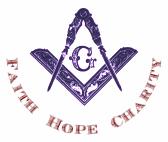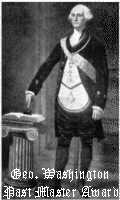 A review of Baudolino by Umberto
Eco
A review of Baudolino by Umberto
Eco
 With all of the bizarre fiction present in the piles of Masonic books which have been published over the last three
hundred years, it may seem strange that this book review recommends a piece of fiction to Masons which has absolutely
nothing to do with Freemasonry. Umberto Eco's latest novel is a strange voyage through 12th century Europe. The book's
title character is a peasant whose talents at learning languages and telling lies attract the attention of the Holy
Roman Emperor Frederick I, who adopts him.
The book is a chronicle of Baudolino's life as told by himself. It begins as truths and minor tall tales which quickly
spiral into a fantastic tale so unbelievable that the reader is left wondering if any of Baudolino's story has a grain
of truth in it.
With all of the bizarre fiction present in the piles of Masonic books which have been published over the last three
hundred years, it may seem strange that this book review recommends a piece of fiction to Masons which has absolutely
nothing to do with Freemasonry. Umberto Eco's latest novel is a strange voyage through 12th century Europe. The book's
title character is a peasant whose talents at learning languages and telling lies attract the attention of the Holy
Roman Emperor Frederick I, who adopts him.
The book is a chronicle of Baudolino's life as told by himself. It begins as truths and minor tall tales which quickly
spiral into a fantastic tale so unbelievable that the reader is left wondering if any of Baudolino's story has a grain
of truth in it.
There are several reasons I believe this book would be of interest to Freemasons. First, the book is set during the height of the influence and power of the Knights Templar. Baudolino narrates his tale during the sacking of Constantinople during the Fourth Crusade, and the contrast between various characters' views and impressions of the Knights Templar is very interesting.
Second, Eco does a marvelous job capturing the mindset of a Medieval scholar. The manner in which Baudolino's lies, unconfirmed stories, and flawed logic blend together into a story that seems too strange to believe seems analogous to the fantastical legends of Freemasonry's origins as told in many of our older texts. For example, in the Constitutions of 1723 by the father of Masonic history, Bro. James D.D. Anderson, a history of Freemasonry is presented which dates our Fraternity back to Adam, Noah, and the exile of the Hebrews from Egypt. While this may seem implausible to us today, Bro. Anderson's history was taken seriously for more than a century. Baudolino shows us how this sort of thing could have been possible.
Beyond being a very enjoyable read, Baudolino encourages the reader to think about the connection between falsehood and history while immersing him in the mindset and world view of the people of the 12th century.



